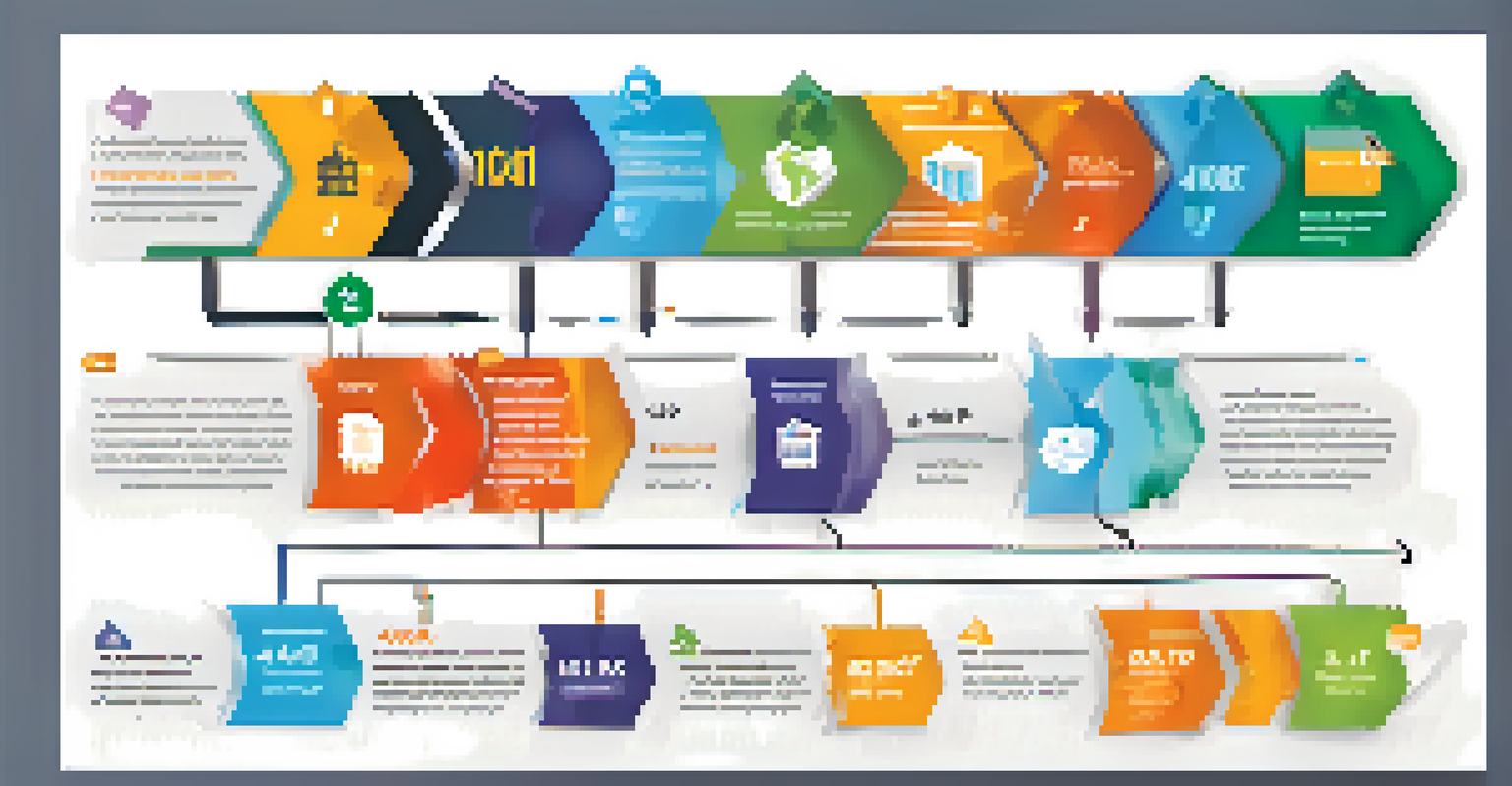How to Roll Over a 401(k) to an IRA: Tax Strategies

Understanding the 401(k) to IRA Rollover Process
Rolling over a 401(k) to an IRA can seem daunting, but it's a straightforward process. Essentially, this transfer allows you to maintain your retirement savings while potentially gaining more investment options. The key is to ensure that your rollover is done correctly to avoid tax penalties and unwanted fees.
The best time to plant a tree was twenty years ago. The second best time is now.
When you decide to roll over, you'll need to choose between two main methods: direct and indirect rollover. A direct rollover transfers the funds directly from your 401(k) to your IRA without you ever handling the cash, making it the cleaner option. An indirect rollover gives you the cash, but you must deposit it into your IRA within 60 days to avoid taxes.
Understanding the nuances of each method will help you make a more informed decision. It’s crucial to consult your 401(k) plan administrator and your IRA provider, as they can guide you through the specifics. This careful planning sets the foundation for a successful rollover.
Why Consider an IRA over a 401(k)?
The decision to roll over your 401(k) to an IRA often comes down to flexibility and control. IRAs generally offer a wider array of investment options, from stocks to bonds and even mutual funds. This variety can help you tailor your retirement portfolio more precisely to your financial goals.

Additionally, IRAs usually have lower fees compared to 401(k) plans, which can significantly affect your overall retirement savings. With fewer administrative costs eating away at your funds, you can invest more of your money where it counts. This means more potential growth for your retirement nest egg over time.
Rollover Methods Explained
Choosing between a direct or indirect rollover is crucial to avoid tax penalties and ensure a smooth transfer of funds.
Furthermore, IRAs provide more withdrawal options once you reach retirement age. This flexibility can be invaluable, allowing you to strategize your income in retirement according to your needs. All these factors make an IRA an appealing option for many savers.
Tax Implications of Rolling Over Your 401(k)
Understanding the tax implications of a 401(k) rollover is essential to avoid surprises down the line. Generally, if you choose a direct rollover, you won’t face any tax penalties, as the funds move seamlessly from one retirement account to another. However, if you opt for an indirect rollover, be cautious, as failing to redeposit the funds within 60 days can result in taxes and penalties.
In investing, what is comfortable is rarely profitable.
It’s also important to consider your tax bracket when planning your rollover. If you expect your income to be higher in the future, rolling over to a Roth IRA might be beneficial despite the taxes due at the time of conversion. In this way, you can lock in a lower tax rate now.
Consulting a tax advisor can help clarify these implications based on your unique financial situation. They can guide you on how to structure your rollover to minimize tax liabilities. With the right approach, your rollover can serve as a strategic move toward a more secure retirement.
Choosing the Right IRA for Your Needs
When rolling over your 401(k), selecting the right type of IRA is crucial. Traditional IRAs allow you to defer taxes until withdrawal, making them a suitable option if you anticipate being in a lower tax bracket during retirement. On the other hand, Roth IRAs require you to pay taxes upfront but allow for tax-free withdrawals later.
Additionally, consider the investment options available within the IRA. Some financial institutions offer self-directed IRAs, giving you the freedom to invest in a broader range of assets, including real estate or precious metals. This level of control can significantly impact your investment strategy and potential returns.
Benefits of IRAs vs. 401(k)s
IRAs typically offer more investment options and lower fees, making them a flexible choice for retirement savings.
Don't forget to evaluate fees associated with different IRAs, including account maintenance and trading fees. A little research can go a long way in ensuring you choose an IRA that aligns with your financial goals and keeps your retirement savings on track.
Common Mistakes to Avoid During a Rollover
Even the most well-intentioned savers can make mistakes during a 401(k) to IRA rollover. One common pitfall is failing to complete the rollover within the 60-day window if opting for an indirect rollover. Missing this deadline can lead to unwanted taxes and penalties, derailing your retirement plans.
Another mistake is not considering the fees and investment options of the new IRA. Some individuals rush into a decision without thoroughly researching their options, which can result in higher costs or limited investment choices. Always take the time to compare different IRAs to find one that best suits your needs.
Lastly, neglecting to consult a financial advisor can be a costly error. Their expertise can help you navigate the complexities of the rollover process and make informed decisions. By avoiding these common mistakes, you can ensure a smoother transition to your new retirement account.
The Role of Financial Advisors in Your Rollover
Enlisting the help of a financial advisor can make a significant difference when rolling over your 401(k) to an IRA. These professionals can provide personalized guidance tailored to your financial situation and goals. They can help you explore your options and weigh the pros and cons of different IRA types.
Additionally, financial advisors can assist with tax planning strategies associated with your rollover. They can help you determine the best time to complete the rollover and whether to do a traditional or Roth IRA conversion based on your current and projected future income. This tailored advice can help minimize tax liabilities and maximize your retirement savings.
Avoiding Common Rollover Mistakes
Being aware of common pitfalls, such as missing the 60-day deadline or not consulting a financial advisor, can help secure your retirement savings.
Moreover, a good financial advisor can help you stay disciplined and focused on your long-term goals. They can keep you accountable and ensure that your investment strategy remains aligned with your retirement objectives. Their expertise can be invaluable in navigating this critical transition in your financial journey.
Final Thoughts on 401(k) to IRA Rollovers
In conclusion, rolling over your 401(k) to an IRA can be a smart move for your retirement savings, but it’s essential to approach the process carefully. Understanding the nuances of the rollover process, tax implications, and the importance of selecting the right IRA can significantly impact your financial future. Taking the time to plan and seek professional advice can help you avoid costly mistakes.
As you embark on this transition, remember that your retirement should be tailored to fit your unique goals and needs. The right IRA can provide the flexibility and investment choices necessary to grow your savings effectively. With thoughtful planning, your rollover can pave the way for a more secure retirement.

Ultimately, staying informed and proactive will serve you well on your financial journey. Embrace this opportunity to take control of your retirement savings and set yourself up for a prosperous future.